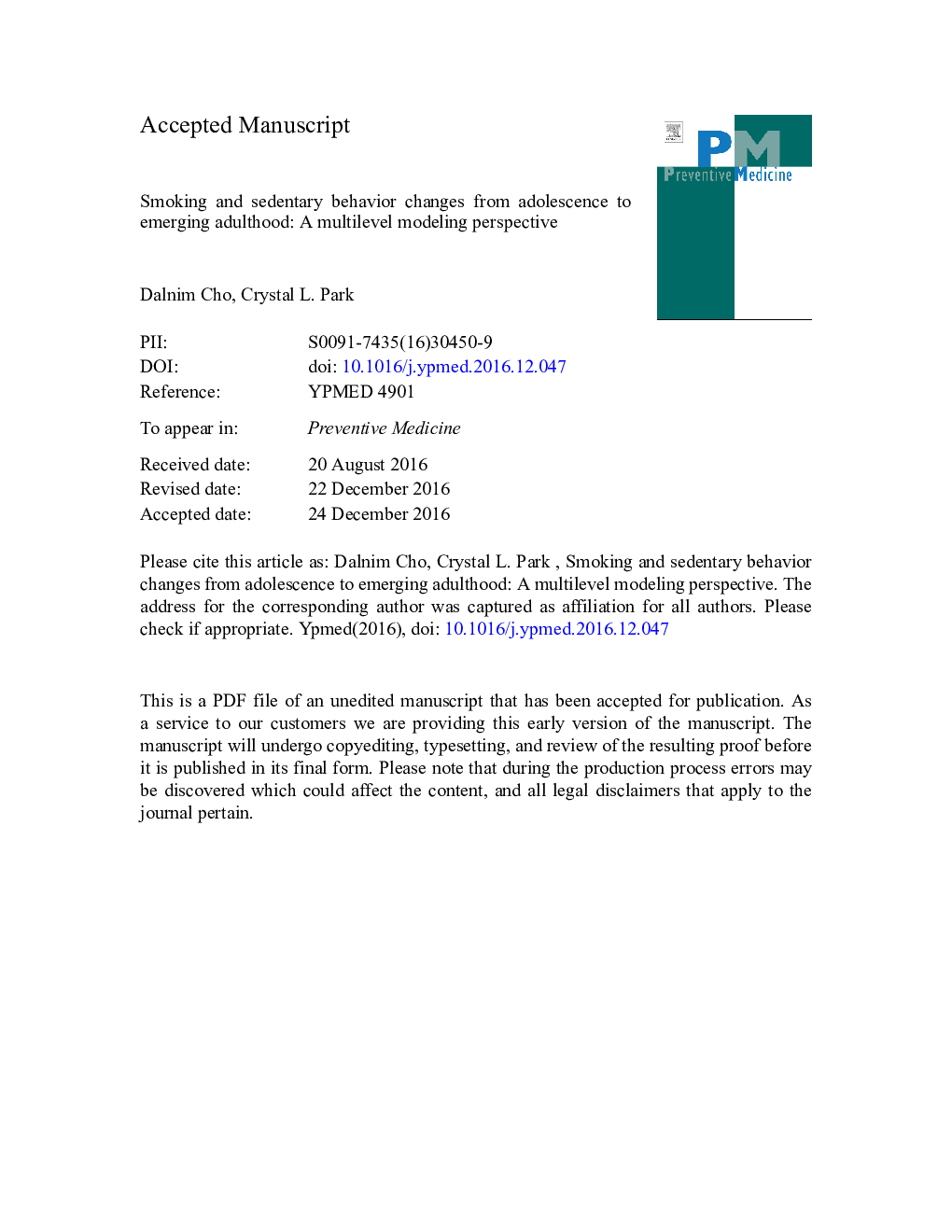| Article ID | Journal | Published Year | Pages | File Type |
|---|---|---|---|---|
| 5635534 | Preventive Medicine | 2017 | 25 Pages |
Abstract
The present research investigated a) the effects of psychological (e.g., depressive symptoms, delinquency) and neighborhood socioeconomic environmental factors (e.g., education, poverty, proportion of racial/ethnic minorities) on changes in smoking and sedentary behaviors from adolescence to emerging adulthood and b) whether there were any cross-level interactions based on socio-ecological models. A series of multilevel analyses (level-1: individual-level; level-2: neighborhood-level) were conducted with the National Longitudinal Study of Adolescent Health (Add Health) wave I (1995) and wave III (2001) data among about 10,000 US adolescents. Adolescents' delinquency (but not depressive symptoms) predicted emerging adults' progression to daily smokers. Adolescents living in neighborhoods with more Hispanics reported being less likely to initiate smoking and progress to daily smoking during emerging adulthood. Adolescents living in neighborhoods with lower education levels reported more sedentary behaviors during emerging adulthood. However, there were no cross-level interactions between individual-level psychological factors and neighborhood-level environmental factors. Supporting the notion of socio-ecological models, not only psychological factors but also neighborhood environments warrant research attention to explain changes in risky health behaviors from adolescence to emerging adulthood. Theory-based research with appropriate characteristics across multiple levels is required to better understand emerging adults' risky health behaviors.
Related Topics
Health Sciences
Medicine and Dentistry
Complementary and Alternative Medicine
Authors
Dalnim Cho, Crystal L. Park,
